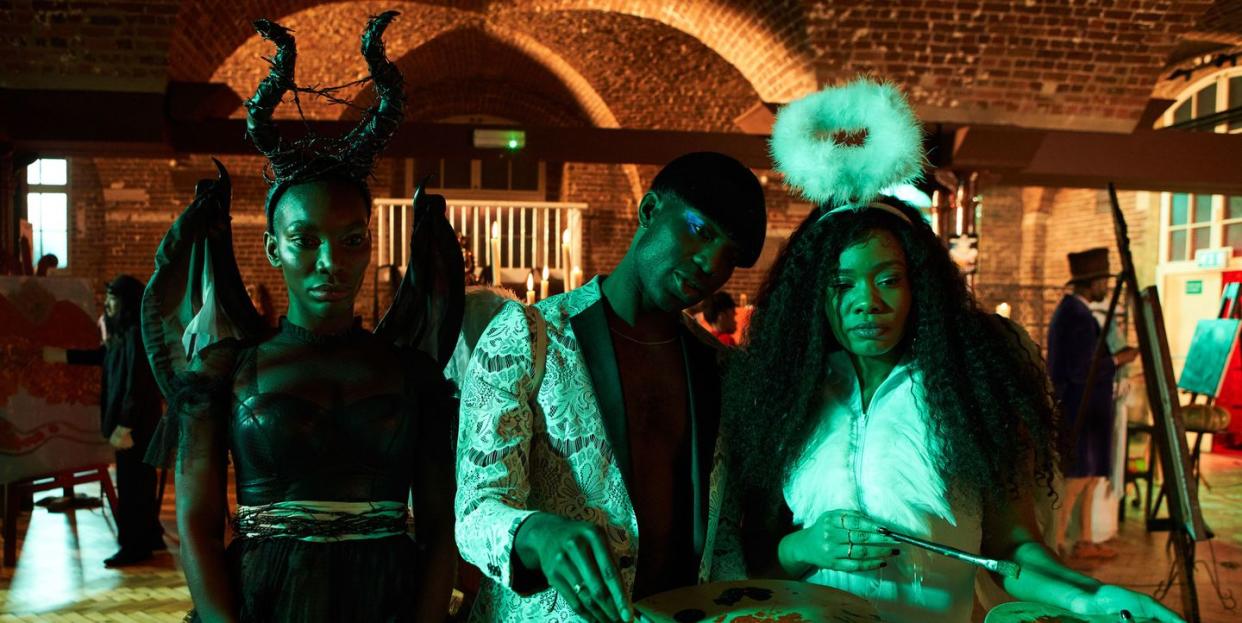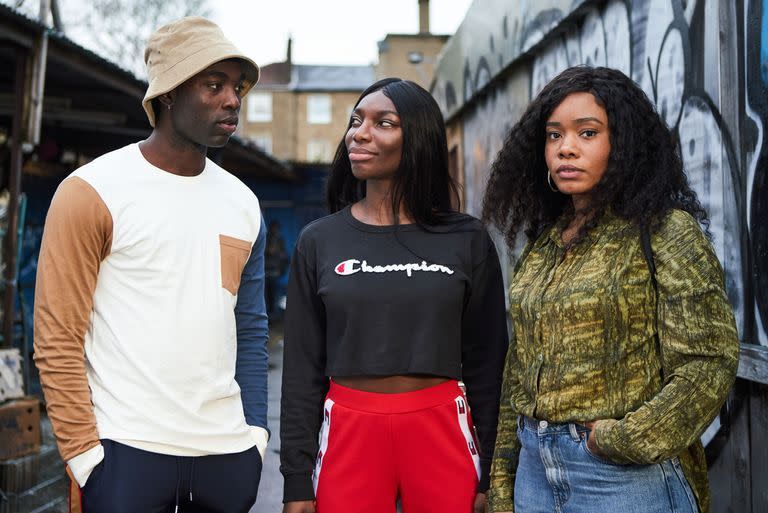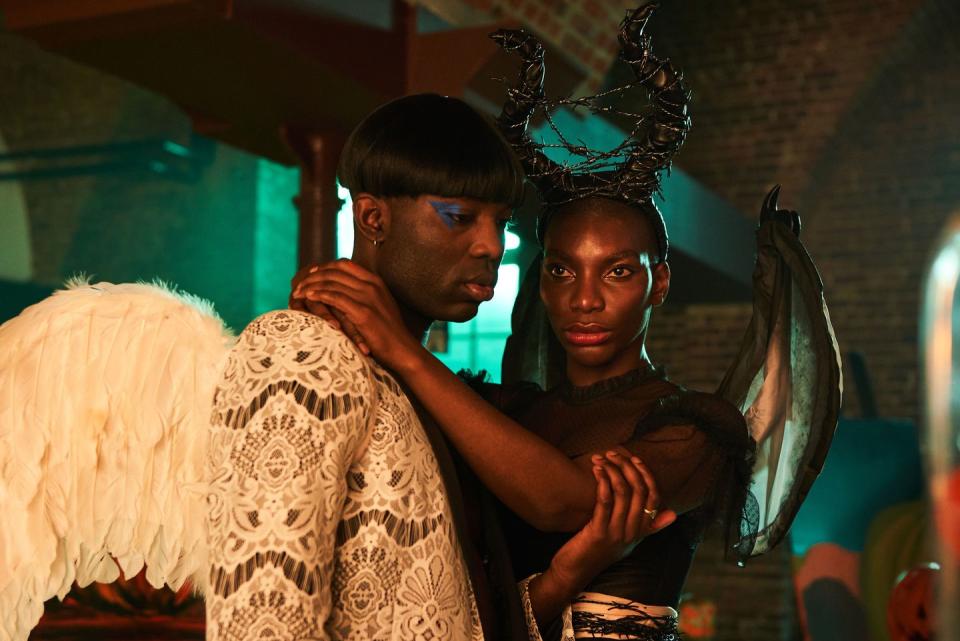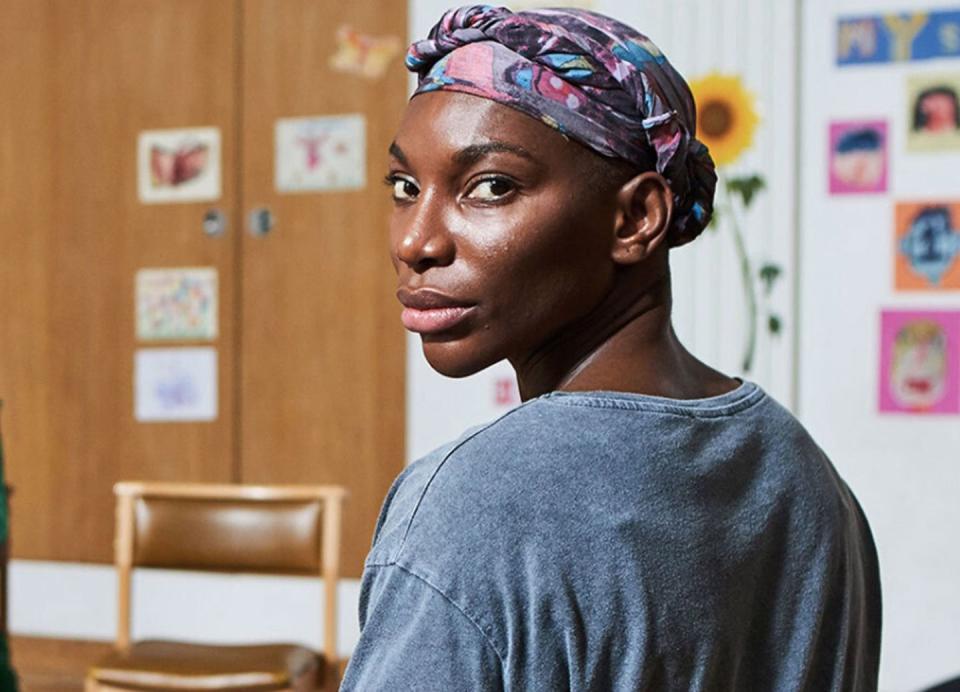I May Destroy You missed an important opportunity with Kwame's queer storyline

The following article contains discussion of sexual assault that some readers may find upsetting. I May Destroy You spoilers follow.
I May Destroy You is a unique show in a lot of ways, whether it’s the frank portrayal of sexual assault, its brilliantly honest exploration of Black millennial life, or the incredible levels of craft that go into every episode. One particular area that has been widely lauded is the unprecedented way it displays Black queer characters on screen.
While we fully agree that Kwame in particular is groundbreaking, and played powerfully by Paapa Essiedu, it was hard to shake the feeling that the gaze he's viewed through is increasingly limiting as the show goes on and reflective of the series’ broader approach to queerness.

There are so many things about Kwame that this show does well. From the off, he’s sexually liberated and there is "no shame to him and to his identity, and especially to his sexuality" (as Essiedu pointed out to Digital Spy). He just lives his truth in a way that is brilliant.
In Kwame's less free and joyous moments, he’s able to represent a kind of sexual assault survivors who are rarely spoken about in the public sphere. The "police are not generally set up to see Black men in general as victims" and neither are we; we’re conditioned to dehumanise Black people and see the queer experience as something entirely alien.
The show imbues him with a level of humanity and introspection that is both important and fascinating.
Where the show fails his character is in its back end. In episode eight, 'Line Spectrum Border', Kwame decides to try sleeping with a woman, and does so without telling her that he has never slept with a woman before.
Niliufer (Pearl Chanda) invites Kwame home, while clearly fetishising him – she hilariously plays 'Barking' by Ramz in the background as they have sex. Afterwards, in some awkward pillow talk, she reveals her intense homophobia, leading Kwame to disclose his sexuality. Niliufer reacts with disgust and kicks him out.
Kwame later discusses this experience with Terry (Weruche Opia) and Arabella (Michaela Coel), upon which Arabella strongly implies he committed sexual assault.

In framing the situation of Kwame and Nilufer as adjacent to sexual assault, something emphasised by how Kwame’s physicality directly mirrors that of his rapist a few episodes before, a false and worrying equivalence is implicitly created.
The idea that non-disclosure of sexuality is adjacent to assault echoes some homo/biphobic ideas.
The first of which is that queer men are somehow "dirty", a large part of which is borne out of the homophobic panic around HIV/AIDS and the idea that this is a disease spread almost exclusively by gay men. This particular stigma is even higher when it becomes to Black gay men specifically, who are disproportionately represented amongst the population of people living with HIV/AIDS.
Another is that bi/pansexual men are just "gay men in denial" or somehow illegitimate in their attraction to women, so are therefore operating in bad faith when they enter into sexual/romantic relationships with women.
While Kwame seems pretty secure in his sexuality, what about the next man who isn’t? Does this new person not discussing their sexual/romantic history make them a predator?
Crucially this also ignores the societal violence and stigmas which make some queer people, particularly pan/bisexual people, not so eager to discuss their sexual history with every new partner.
The problem isn’t even that these harmful ideas are an undercurrent in the character reactions. Coel deliberately creates very messy characters with their own hang-ups, and this blurring of lines is a key component of I May Destroy You.

The problem is that although Arabella and Kwame reconcile on a personal level, he never really gets to defend himself, and the broader structural issues at play here are never unpacked. Instead, the show centres the reactions of Nlufer and Arabella (straight women), meaning the complicated and much-needed conversation around the non-disclosure of sexuality is never actually had.
The other problem with Kwame's character is how his arc is brought to a close — at least, within the frame of the show. In episode ten, 'The Cause, The Cure', Kwame attends what he expects to be another hookup, but the man ends up having cooked him a meal. This is kind of played for laughs, but Kwame does stay and just have dinner.
The two begin dating and Kwame talks about how since they’ve started seeing each other, Tyrone (Gershwyn Eustace Jnr) is making him a better person. In the finale, he’s happily coupled with Tyrone in a way that feels almost domestic.
Everyone’s route to healing from trauma is different, but it feels strange that the sexually liberated Kwame has to find his healing in a type of relationship which easily registers as "normal" for the presumed heterosexual viewer.
This resolution reframes his earlier sexual liberation in a harsher light. It now becomes part of a progressive but still limiting attitude to sex and relationships, which is sex-positive, but only to a point. It’s the kind of ideology that says chastity before marriage is outdated, so you can be promiscuous in your 20s, but then, of course, you’ll settle down with The One and be complete.

Essentially, Kwame has moved out of the "sleeping around" phase and into a more "serious" part of his life, with dinner dates and no more random hookups. Beyond Kwame, Damon (Fehinti Balogum) the closeted guy that he tried to hook up with on the night he was assaulted, has also found happiness in a relationship, and this almost feels the only way by which queer people in I May Destroy You are allowed to be happy/at peace.
In this, a hierarchy of relationships is created; the romantic supersedes the carnal, and relationships that form (or at least mirror) the heterosexual family unit are prized above all.
This seems to ignore the way that so many queer people break out of that mould, creating bonds that move past this prescriptive model and break the binary thinking that one type of relationship must be more meaningful than another.
Outside of Kwame, you can feel how queer people are instrumentalised and basically become teachable moments. This is especially true with Kai (Tyler Luke Cunningham), a trans man who Terry flirts with and goes on a date with in the penultimate episode before realising he’s trans.
The ensuing scene feels more centred around teaching her (and the cis audience by proxy) not to be transphobic than actually giving him his own agency – even with the life Cunningham puts into the performance. It's definitely important to have a trans character, particularly a Black trans character, presented as desirable in a non-fetishistic way – but we wish he could have been given more agency outside of teaching cis people about trans identity.
None of this is to say that I May Destroy You is hateful towards queer people. There is a clear degree of compassion throughout the show, but compassion isn’t the same as understanding, and the ways these characters are pushed into heteronormative moulds shows that. As we moved towards the finale and the dedication of Arabella’s book to Terry (but conspicuously not to Kwame), it was hard not to feel like the story of queerness in I May Destroy You could do with a few more pages.
I May Destroy You aired on BBC One and is available to watch on BBC iPlayer.
Rape Crisis England and Wales works towards the elimination of all forms of sexual violence and sexual misconduct. If you’ve been affected by the issues raised in this story, you can access more information on their website or by calling the National Rape Crisis Helpline on 0808 802 9999. Rape Crisis Scotland’s helpline number is 08088 01 03 02.
Readers in the US are encouraged to contact RAINN, or the National Sexual Assault Hotline on 800-656-4673.
Digital Spy now has a newsletter – sign up to get it sent straight to your inbox.
Looking for more TV recommendations and discussion? Head over to our Facebook Group to see new picks every day, and chat with other readers about what they're watching right now.
You Might Also Like

